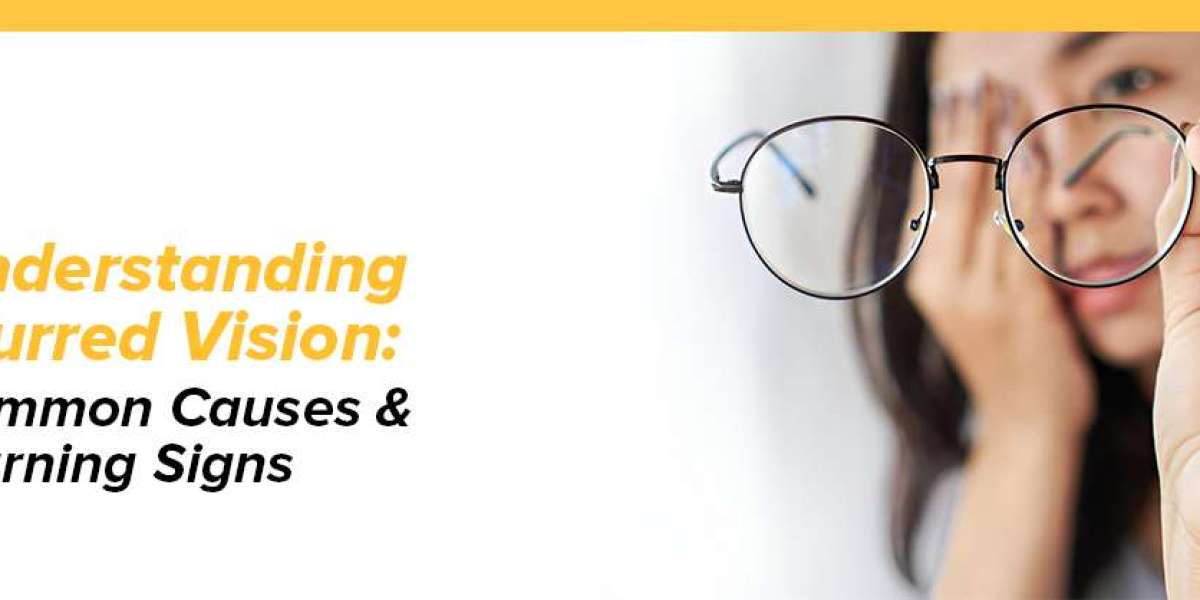Blurred vision can occur for various reasons, ranging from minor issues to serious medical conditions. It can affect one or both eyes and may develop gradually or suddenly. While some causes are harmless and temporary, others may require prompt medical attention. Understanding the potential reasons behind blurred vision is crucial for ensuring proper care and maintaining eye health.
Common Causes of Blurred Vision
Blurry vision can result from various underlying factors, ranging from minor eye strain to serious medical conditions. Identifying the root cause is essential for effective treatment and improved eye health. Below are some of the most common causes that individuals should be aware of.
Refractive Errors
Refractive errors such as nearsightedness (myopia), farsightedness (hyperopia), astigmatism, and presbyopia are among the most frequent causes of blurred eyesight. These conditions occur when the eye's shape prevents light from focusing directly on the retina, resulting in visual distortion. People experiencing these issues may find it challenging to see objects clearly at certain distances. Prescription glasses, contact lenses, or corrective surgeries can effectively manage refractive errors and improve vision.
Dry Eyes
Dry eye syndrome occurs when the eyes fail to produce enough tears or when tear quality is poor. This can result in discomfort, irritation, and blurred vision. Prolonged screen time, environmental factors, and ageing are common contributors to dry eyes. Artificial tears, lifestyle adjustments, and humidifiers can help alleviate dryness and restore visual clarity.
Eye Infections
Infections such as conjunctivitis (pink eye) or keratitis can lead to blurred sight, accompanied by redness, itching, and discharge. Bacterial, viral, or fungal infections can affect the cornea, impairing vision until the infection is treated. Using prescribed eye drops or medications can effectively manage these conditions and restore eye health.
Cataracts
Cataracts cause clouding of the eye's natural lens, resulting in progressively blurred eyesight. Common in older adults, cataracts may develop slowly and impact daily activities such as reading or driving. Early-stage cataracts may be managed with stronger lighting and prescription lenses, but surgery is often necessary to restore clear vision.
Glaucoma
Glaucoma is an eye condition that damages the optic nerve, often due to increased pressure inside the eye. It can cause peripheral vision loss, halos around lights, and eventual blindness if left untreated. Regular eye check-ups are essential to detect glaucoma early, as symptoms often develop gradually. Medications, laser treatments, or surgery can effectively manage the condition.
Diabetic Retinopathy
Individuals with diabetes are at risk of developing diabetic retinopathy, a condition that damages the blood vessels in the retina. Blurred vision, floaters, and dark spots are common symptoms. Managing blood sugar levels and undergoing routine eye examinations are vital for preventing and controlling diabetic retinopathy.
Age-Related Macular Degeneration (AMD)
AMD affects the macula, the central part of the retina responsible for sharp vision. It is a leading cause of vision loss in older adults. Symptoms include blurred central vision, distorted images, and difficulty recognising faces. Early detection and lifestyle changes can help slow AMD progression and preserve vision.
Eye Strain
Prolonged screen use, reading in poor lighting, or extended periods of focus can cause digital eye strain, leading to blurred eyesight. Symptoms may include headaches, dry eyes, and discomfort. Following the 20-20-20 rule—looking 20 feet away for 20 seconds every 20 minutes—can reduce eye strain and maintain visual clarity.
Migraine
Visual disturbances such as blurred eyesight, flashing lights, or blind spots are common symptoms of migraine. These visual effects, known as aura, usually occur before or during a migraine attack. Managing triggers, maintaining a regular sleep pattern, and reducing stress can help prevent migraine-related vision problems.
Stroke
A stroke affecting the visual cortex or optic nerve can cause sudden blurred or double vision. Other symptoms may include weakness, numbness, or difficulty speaking. Immediate medical attention is critical if stroke symptoms occur, as prompt treatment can reduce long-term complications.
Tips to Prevent and Manage Blurred Vision
Maintaining healthy vision requires consistent care and preventive measures. Adopting healthy lifestyle habits and seeking timely medical advice can reduce the risk of developing vision problems. The following tips can help manage and prevent blurred vision effectively.
Regular Eye Check-ups
Routine eye examinations can detect vision issues early, allowing for timely treatment and management. Annual check-ups are essential, especially for individuals with existing conditions such as diabetes or hypertension.
Balanced Diet for Eye Health
Consuming foods rich in vitamins A, C, and E, along with omega-3 fatty acids, supports eye health. Leafy greens, carrots, and fish are excellent dietary choices that contribute to maintaining clear vision and reducing the risk of eye conditions.
Proper Lighting and Screen Usage
Ensuring adequate lighting while reading or working on screens can minimise eye strain. Adjusting screen brightness and positioning monitors at eye level can reduce fatigue and maintain visual comfort.
Hydration and Eye Care
Staying hydrated helps maintain tear production and prevents dry eyes. Additionally, taking breaks from screen time and practising blinking exercises can reduce dryness and maintain clear vision.
Managing Underlying Health Conditions
Controlling chronic conditions such as diabetes and hypertension is crucial for protecting eye health. Maintaining stable blood sugar and blood pressure levels reduces the risk of vision-related complications.
Conclusion
Blurred vision can result from various causes, some minor and others requiring immediate medical care. Understanding the common triggers, practising preventive measures, and seeking professional guidance can help individuals protect their eyesight. Regular eye examinations play a vital role in detecting issues early and ensuring long-term visual well-being. Comprehensive healthcare plans that include vision care can provide the necessary support to manage eye health effectively. By adopting a proactive approach and making informed lifestyle choices, individuals can maintain a clear and healthy vision for years to come.
Niva Bupa offers comprehensive health insurance plans that support preventive eye care and routine check-ups, ensuring individuals can access the guidance and treatment they need to maintain optimal eye health.



